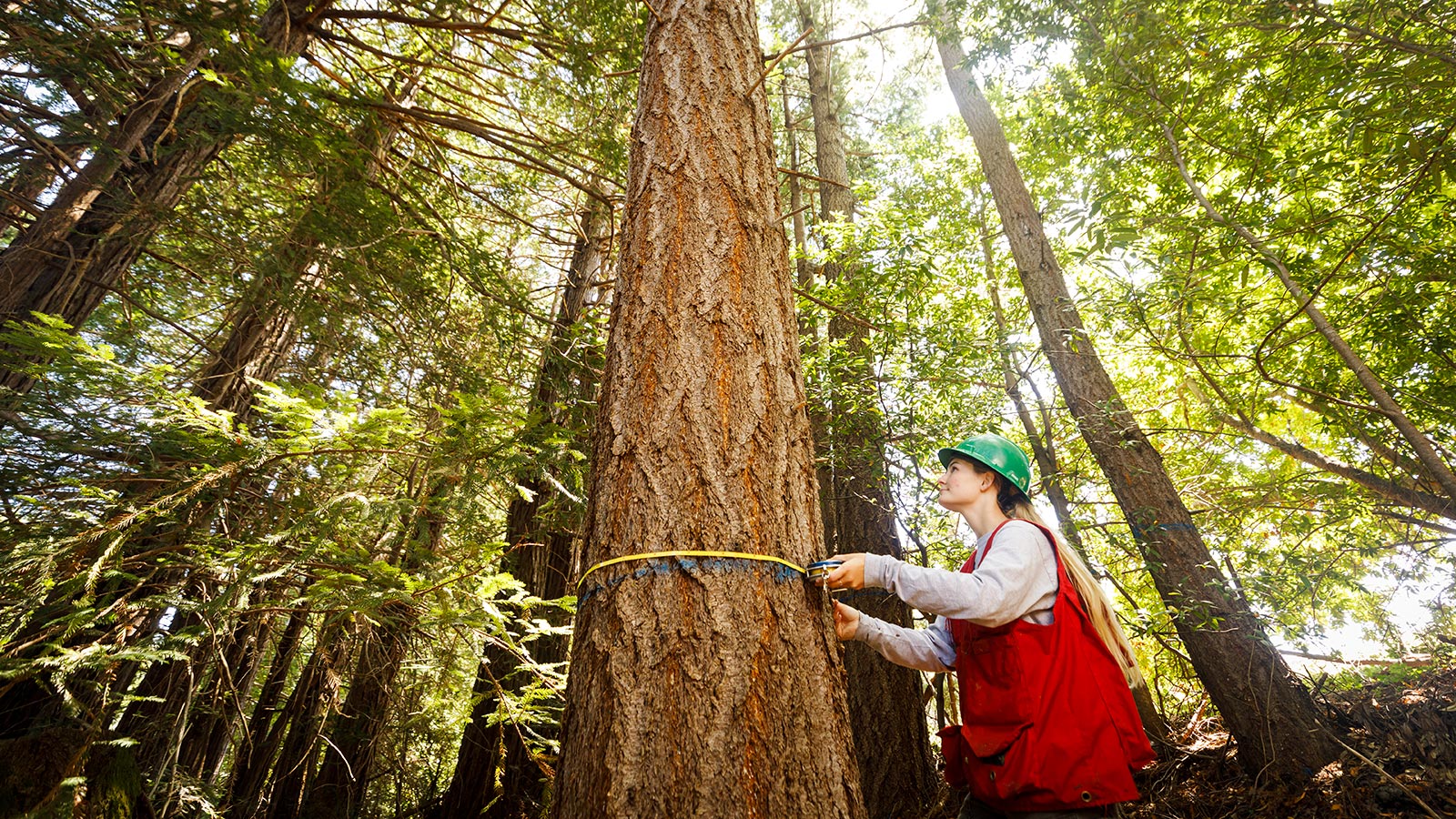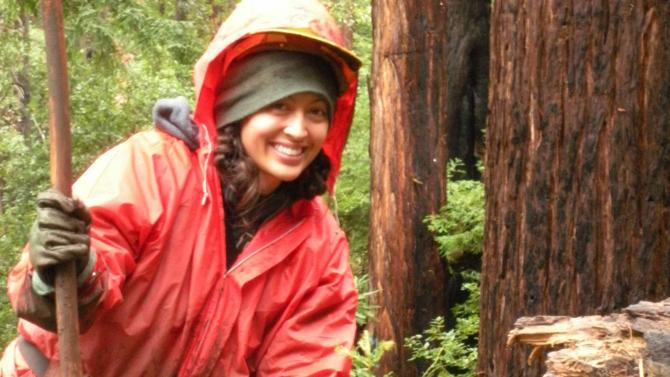Forest and Fire Sciences
College of Agriculture, Food and Environmental Sciences
Conservation scientists and foresters lead the effort to protect and manage the world's forests and natural resources while recognizing the needs of the communities depending on them.
San Luis Obispo, California
The Forest and Fire Sciences curriculum takes classroom knowledge outdoors in many of the major courses. You will study forest ecosystem management, dendrology, forest practices, environmental protection, fire ecology and watershed management.
Measurements and Sampling in Forested Environments
Weekend field trips bring to life the principles and methods of sampling and measurement of forests with applications in sampling, statistical and inventory techniques.
Silviculture and Vegetation Management
Forest ecology studies take place in labs and overnight field trips. Topics include natural stand dynamics, traditional/contemporary forest management systems, forest health assessments/diagnoses, emulating natural disturbances and managing ecosystem services.
Watershed Management and Hydrology
Learn the fundamentals of a broad variety of hydrologic sub disciplines including vadose zone hydrology, groundwater hydrology, soil erosion control, water quality and watershed management. Upon completion of this concentration, you will be qualified to work in a water-related position for federal and state agencies, private companies and environmental consulting firms.
Wildlife Biology Concentration
This specialized course of study prepares you for wildlife biology certification and employment in the fish and wildlife areas of law enforcement, management and production.
Wildland Fire and Fuels Management
This concentration studies the management of fire and fuels on landscapes ranging from the wildlands to urban areas. Emphasis is placed on the technologies, issues and policies in managing fire; using fire as an ecosystem management tool; and the social and economic impacts of fire. The concentration meets the minimum requirements for Wildland Fire Practitioner Certification by the Association for Fire Ecology.
About the Program

The forest and fire sciences program prepares you for a career in the protection and management of forests and natural resources.
You will gain hands-on experience with the equipment and techniques in common use by foresters, natural resources managers, soil scientists, agricultural scientists, geologists and environmental scientists. The program is accredited by the Society of American Foresters, and you will receive a forester designation by the U.S. Office of Personnel upon graduation.
Concentrations are available in watershed management and hydrology, wildlife biology, or wildland fire and fuels management, or a more general course of study. All concentrations allow you to make extensive use of Swanton Pacific Ranch, an extensive 3,800-acre field laboratory managed by Cal Poly. Paid internships are available at Swanton Pacific Ranch, or you may choose to pursue a seasonal job, volunteer work or a cooperative education program.
Learn by Doing
As a Forest and Fire Sciences student, you will have access to a number of outdoor field sites for projects and research. Facilities include the Forestry Skills Center and the Urban Forest Ecosystems Institute (UFEI) where you can study the full spectrum of forest settings – from inner-city forests to remote semi-developed forests. You will learn from leading experts in wildland fire management and experience the first-hand effects of fires on shrub, woodland and forest environments.

Explore Ecosystems
Our Graduates
Forest and Fire Sciences graduates are employed in California and throughout the world, sustaining forests, establishing urban wildland areas and managing the environment.
Graduates often take positions as fire and fuels manager, foresters, natural resource managers, urban foresters, park administrators, resource planner, hydrologists and many other related career areas for the federal government or for private landowners. Social advocacy organizations also employ foresters and conservation scientists to work with lawmakers on sustainable land use and other issues.
